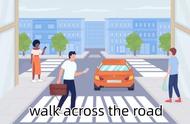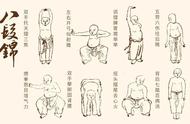Hello! I'm Emma from mmmEnglish! In this lesson you'll learn ten phrasal verbs using the verb, 'come'.
嗨!我是 Emma 来自mmmEnglish!在本节课你会学习用到动词 'come' 的十个短语。
Now, phrasal verbs are groups of words in English made up of a verb and either one or two particles. Now, a particle can either be a preposition like 'on' or an adverb like 'together'.
那么,动词短语是英语中由一个动词和一到两个其他词组成的词组。那么,这一个词既可以是介词像是 'on',也可以是一个副词像 'together'。
To learn more about phrasal verbs make sure you watch this video here because here, I share my top tips for learning phrasal verbs but I'll also link to it at the end of this lesson so you can keep watching! Now phrasal verbs are a challenge for you, aren't they?
想要学习更多的动词短语,你一定要看这里的这个视频,因为在这里我分享了我在学习动词短语方面的顶级秘诀,我在本视频结尾也放了这个视频的连接,所以你可以继续观看!那么动词短语对你来说是一个挑战,不是吗?
They're hard for English learners! Often one phrasal verb has more than one meaning.
它们对英语学习者来说很难!通常一个动词短语有不止一个意思。
They can often be idiomatic so the meaning isn't obvious from the words. And not every phrasal verb follows the same rules.
它们经常是一些习语类的,所以不是字面意思那么明显。而且不是每个动词短语都遵守相同规则。
Some are transitive, some are intransitive, separable or inseparable or both! But ignoring phrasal verbs is not an option for you because they are so common!
有些是及物的,有些是不及物的,可分离的,不可分离的或者都是!但是不学动词短语不是一个好选择,因为它们非常常见!
They come up all the time in conversation. You'll hear me use them all the time in my lessons.
他们在谈话中经常出现。你在我课程中总能听到我用他们。
Actually, make sure you go and have a look at the transcript for this lesson on my blog to see just how many phrasal verbs I've used during this lesson. Okay, let's dive into 10 common phrasal verbs using the verb 'come'.
实际上,你一定要去我的博客看本节课的文本,看看我在这节课里到底用了多少个动词词组。好的,我们开始探索10个使用动词 'come' 的动词短语吧。
Now, I'm not going to include all of the possible meanings for these phrasal verbs but the meanings I'm going to share are the commonly used ones, the ones that you'll hear come up often in conversation. So let's start with 'come up'.
那么,我不打算覆盖这些动词短语全部的意思,只是我打算分享的都是常见的意思,你在对话中经常能听到的意思。那么我们从 'come up' 开始。
'Come up' has a few different meanings. It can mean to be mentioned or talked about in a conversation.
'Come up' 有一些不同的含义。它的意思可以是在一次谈话中被提到或谈论。
So. . If anything important comes up during the meeting, I'll tell you about it later. Every time I have dinner with my mum, the topic of marriage always comes up!
那么…如果任何会议中提到了任何重要的事,我会稍后告诉你的。每次和我妈妈吃晚饭时,结婚的话题总会出现!
It can also mean to approach or to go towards someone, especially if they are on a higher level than you are. Come up on stage and collect your award!
它的意思还可以是接近或朝某人走去,特别是在某人的位置比你高的时候。走上台前领取你的奖励吧!
Come up to my apartment, it's on the fourth floor. She came up to meet me at a party and we've been friends ever since.
来我的公寓吧,在4楼。她在一个派对上遇见了我,我们从那时成为了朋友。
Now if something like a job or an opportunity comes up, it becomes available. This new opportunity has come up and we need to take it.
如果说某物比如说一份工作或一个机会出现了,意味着它是可获得的。新的机会出现了,我们需要抓住它。
Now if a problem or an issue comes up, it happens and it needs to be dealt with immediately. Something's just come up, so I need to cancel my appointment.
那么如果一个问题或一个事件出现了,它发生了,并且需要立即应对。某事刚好发生了,所以我需要取消我的预约。
Every time I take a day off, something always comes up and I'm needed back at the office. To 'come up with', Now, this phrasal verb is transitive and if you're not exactly sure what that means, make sure you watch this lesson up here because I'll explain it for you there.
每次我一请假,总是有事发生,而我需要返回办公室。'come up with',那么,这个动词短语是及物的,如果你不完全确定它是什么意思,你一定要看本节课,因为我会在这里为你解释它。
But when a phrasal verb is transitive, you need to include something. You can't just say. . Yesterday I came up with.
但是当一个动词短语是及物的时候,你需要连接一些东西。你不能只是说…Yesterday I came up with.
Came up with what? I came up with a plan.
你想起了什么?我想起了一个计划。
I came up with a new idea. I came up with a solution.
我想起了一个新想法。我想起了一个解决办法。
For this phrasal verb to make sense, you must always include what you have come up with. 'Come in'.
想要这个短语有意思,你必须总是要包括你想起了什么。'Come in'.
Well you've probably heard this one and it means to enter a building or a room. The TV was so loud, he didn't notice me come in.
你可能之前听过这个短语,它的意思是进入一幢建筑物或一个房间。电视太吵了,他没注意到我进来了。
Are you busy? Can I come in? But it can also mean arrive.
你忙吗?我能进来吗?但是它还有到达的意思。
The train comes in at 3 o'clock. News is coming in that they found survivors in the crash!
火车3点钟到达。消息传来了,他们在坠机中发现了幸存者!
But it can also be used when talking about clothing or fashion. These shirts come in three colours.
但是它可以在谈论衣服或时尚时使用。这些衬衫有三种颜色。
Another common use for this phrasal verb is when you're talking about the ocean or specifically, the tide. When the tide comes in, the water rises and it covers more of the beach.
这个动词短语的另一种常见用法是你在谈论大海,或者明确些,海浪。当海浪来的时候,海水上涨,覆盖更多的沙滩。
The tide will come in at about 6 o'clock this evening. To 'come out'.
潮汐会在晚上6点到来。下一个,'come out'.
Okay, so 'come out' must be the opposite of 'come in', right? No!
好了,那么 'come out' 肯定是 'come in' 的反义词对吧?不是!
This is one of the tricky things about phrasal verbs. Logical opposites are not always correct.
这就是动词短语的一个麻烦之处。逻辑性上的反义词不总是正确的。
The opposite of 'come in' is 'go out'. If some information comes out, something that was previously unknown becomes known.
'come in' 的反义词是 'go out'。如果一些信息出现了,就是说一些之前未知的东西现在变得已知了。
After ten years, the truth finally came out. Now it can also be a synonym for 'appear'.
10年后,真相总算曝光了。那么它可以是 'appear' 的同义词。
There was a dead tree coming out of the water. And of course, after a big thunderstorm, the sun always comes out from behind the clouds.
水上浮起了一颗枯树。当然了,在一场大雷暴雨之后,太阳总会从云彩背后出来。
We use this phrasal verb to say that the sun or the moon or the stars have appeared in the sky. If your favourite band is working on a new album, they'll probably tell you when it's going to come out.
我们用这个动词短语来说太阳,月亮或星星出现在天空中。如果你最喜欢的乐队正在准备新专辑,它们可能会告诉你专辑什么时候出版。
The new album will come out in June. My sister's new book comes out in December.
新专辑会在6月出版。我姐姐的新书在十二月出版。
It can also mean to go somewhere with someone for a social event. Do you want to come out with us on Friday night?
它的意思还可以是和某人为了一个社交活动去某个地方。你想要在周五晚上和我一起出来吗?
He's not coming out with us tonight because he's unwell. Come on!
他今晚不能和我们出来因为他不舒服。快点!
'Come on' is an expression that you'll hear all the time! It can mean hurry up.
'Come on' 是你们总能听到的一个表达。它的意思可以是快点。
Come on, we're going to be late! Or you could use it to encourage or support someone.
快点,我们马上要迟到了!或者你可以用它来激励或者支持某人。
Come on, you can do it! It can also be used when you don't believe something that someone said.
加油,你可以做到的!当你不相信某人说的话时也可以用这个短语。
Oh come on! That's not true!
哦得了吧!这不是真的!
'Come on' can also mean to start working. The light in the bathroom just came on.
'Come on' 还可以表示开始工作。浴室的灯开始运转了。
The hot water isn't coming on. Are you sure it's working?
热水没有了。你确定它还在运转吗?
It can also be used when you're referring to a sickness that is just starting to develop, usually with a common cold. I think I've got a cold coming on.
但你在指一个病情开始发展时,通常是常见的感冒,你也可以用这个词。我想我马上要感冒了。
To 'come down'. Now generally, this phrasal verb is a synonym for reduce or fall.
接着 'come down'。那么一般来讲,这个动词短语是减少或者下降的同义词。
It's used when something moves in a downwards direction. There was a big storm last night and many of the trees came down.
当某物向下方移动时,可以用这个短语。昨晚有一场大风暴,很多树都倒了。
Come down here now! You can use this when you're talking to someone who's higher than you, perhaps they're upstairs or in a tree.
下来这里!当你在谈论某个人的位置比你高时,可能他们在楼上或者在树上。
Come down here! Now, this phrasal verb actually is the opposite of 'come up' if you think back to the apartment example.
下来这里!那么,这个动词短语实际上是 'come up' 的反义词,如果你回想一下公寓的例子。
Your friend might invite you to come up. Or you could tell them to come down.
你的朋友可能邀请你出现。或者你可以告诉他们出来。
'Come down' is also used something reduces, so often the price. After Christmas, the price of the sofa will probably come down.
'Come down' 还可以用于某物减少,下降,通常是价格。圣诞节之后,沙发的价格可能会下降。
'Come down' is also used when someone travels south, to meet you or to visit you. He came down from Sydney last night.
'Come down' 还可以被用于当某人去南部旅行,去见你或者拜访你。他昨晚从悉尼过来的。
Their family comes down for the Easter holidays every year. But what about to 'come down on'?
他们家每年复活节假期都会过来。但是 'come down on' 是什么意思?
Now, to come down on someone is a really negative thing. It means to punish someone because they didn't perform as expected.
那么,come down on someone 真的是一个负面的事情。它的意识因某人表现得不符合预期而惩罚某人。
My boss came down on me really hard because I didn't finish the report in time. To 'come across'.
我的老板狠狠批评了我,因为我没有按时完成报告。接着 'come across'。
Again, this phrasal verb has multiple meanings. Firstly, it can be used to describe your characteristics or the characteristics of someone.
再说一次,这个动词短语有很多意思。首先,他可以用于描述你的个性或某人的个性。
Often when you first meet them, or you first see them, to say that they seem to be a particular type of person. When we first met, he came across as quite arrogant.
通常当你在第一次遇见他们的时候,或者第一次见到他们的时候,你可以说他们看起来像是某一类人。我们第一次遇见时,他给人印象颇为傲慢。
So when you met her, how did she come across? What was she like?
所以当你遇见她时,她给人印象如何?她什么样?
She comes across really well on television. So that means she creates a really positive image, you know, for the station, for the company.
她在电视上给人印象很好。所以意思是她创造了一个非常正面的形象,你知道的,给车站的人,给公司。
Now, a lot depends on how you come across in an interview. Note that some native English speakers use the phrasal verb 'come over' in this way too.
那么很大一部分依据于你是如何在访问中给人留印象的。注意一些英语母语者会在这种情况用动词短语 'come over'。
He came over really arrogant. It means he seemed really arrogant.
他给人印象非常傲慢。意思是他看起来非常傲慢。
To 'come across' something can also mean to meet someone or to find something, by chance, without expecting to. When we were walking in the forest, we came across an old abandoned house.
'come across' 某物也可以表示偶然遇见或找到某人的意思,即意料之外地。当我们走在树林里时,我们偶然发现了一个被遗弃的老房子。
'Come over' Again, this phrasal verb has multiple meanings but the most commonly used one is used to describe movement.
'Come over'再说一次,这个动词短语有很多种意思,但是最常见的用法是用于描述一个瞬间。
The movement from one place to another. Come over here!
从一个地方到另一个地方的瞬间。过来这里!
Why don't you come over to my house for dinner? My brother is coming over from Melbourne for the weekend.
为什么你不来我家吃晚餐呢?我的哥哥这周末从墨尔本过来。
Now, it can also be used when someone suddenly feels a strong emotion or feeling. I came over a little dizzy.
那么,还可以用于表示某人突然有一种强烈的感觉或情绪。我突然有一点头晕。
When I saw him do it, a huge wave of anger came over me. Now, this can also be expressed with the verb 'overcome'.
当我看见他这么做的时候,一种强烈的愤怒淹没了我。那么,这还可以用动词 'overcome' 来表达。
You can be overcome with an emotion. 'Come at'.
你可以被一种情绪淹没。'Come at'。
Now this phrasal verb is transitive and it usually involves a person or an animal coming towards someone in an aggressive or physical way. As soon as I opened the gate, the dog came at me.
那么这个动词短语是及物的,而它通常会接一个人或者动物朝某人走过来,以一种主动地或者物理地方式。我一打开大门,这只狗就朝我冲过来。
I wasn't expecting him to come at me with a knife. To 'come back'.
我没想到他会拿刀向我冲过来。接着 'come back'。
Now, most commonly this phrasal verb is used when somebody or something returns to a place or returns to an original state. I'll come back in half an hour and get you.
这个短语最常用于某人或某物回到某个地方或回到原来的国家。我会在半个小时后回来接你。
I thought I got rid of my cold, but I think it's coming back. When are you coming back home?
我本以为我克服了感冒,但我想它又要复发了。你什么时候回家?
Now as a compound noun, it can mean to attempt to return to former glory. To try to become famous or important again after a period of being less so.
作为一个复合名词,它的意思可以是试图回到往日的辉煌。指在一段时间的萎靡后,重新变得出名或者有地位。
The wrestler is making a comeback! She hasn't released a book in over ten years, so I guess now she's making a comeback!
这个摔跤手正在努力重返辉煌。她已经十多年没出书了,所以我想她正在努力重返辉煌。
Well how many of those phrasal verbs did you know? Perhaps you knew all of them but maybe you'd learnt some new ways to use them.
好了,你学了多少个动词短语了?或许你们已经认识所有的这些动词短语,但你们可以学到一些新的方式来使用它们。
I hope you did! Make sure you subscribe to my channel by clicking the red button right there and turn on the notifications so that you know when I upload a new lesson.
我希望你们做到了。确定你们点击这个红色按钮订阅了我的频道,打开了通知,这样你们就知道我什么时候上传了新课程。
If you want my top tips and recommendations for learning and using phrasal verbs, make sure you watch this lesson right here! And you can check out some of my other lessons right here in this playlist.
如果你想要我在英语学习和使用动词短语的建议或推荐,你一定要看这门课!你可以观看我的其他课程,就在这里的播放列表。
Thanks for watching and I will see you again next week for a new lesson here on mmmEnglish. Bye for now!
感谢观看,我们下周在 mmmEnglish 的新课程再见!再见!
,













